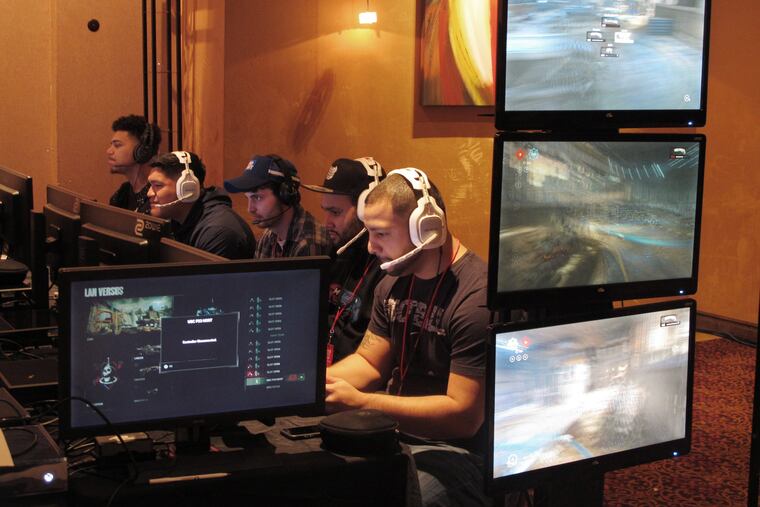Esport betting platform gets license for video game gambling
Video gamers in the United States and elsewhere will soon be able to bet on themselves.

Video gamers in the United States and elsewhere will soon be able to bet on themselves.
The live-betting esports platform Unikrn had its wagering license approved by the Isle of Man on Tuesday, clearing the way for users to legally gamble on competitive video games.
"There is finally a legitimate, regulated operator in the space that has a pretty comprehensive offering," Unikrn CEO Rahul Sood told the Associated Press. "It's huge."
Unikrn immediately began rolling out online products to 20 countries and will soon bring esports wagering to most of Europe, South Korea, and other Asian countries, and parts of Latin America. Certain types of esports betting will be available in the U.S.
Unikrn had previously been licensed to provide real-money betting on esports only in the U.K. and Australia.
In countries with legalized sports betting, Unikrn users will be able to make odds bets on major esports competitions, such as the upcoming League of Legends World Championship on Nov. 3.
Unlike traditional sports books, the esports platform will also offer skill-based bets. Essentially, gamers can bet on their own abilities in games such as Fortnite, PlayerUnknown's Battlegrounds, and League of Legends.
Once they have verified their age and location, users can link their game to the Unikrn platform, and then Unikrn will generate odds for the player based on his or her profile within the game. Players can place a bet on the Unikrn website into a mutual pool, play their next match, then come back to the site to claim their winnings or make another wager.
In the U.S., skill-based betting will go live in 41 states as part of Unikrn's product rollout, although a date hasn't been made public. Esports spectator betting will not yet be available in the U.S.
Unikrn is still trying to establish esports odds betting in America. A path was paved this summer when the Supreme Court struck down a 1992 federal law that banned sports betting in most states, but the industry remains fragmented. Sood is hopeful that if a national governing sports betting body is formed, it will provide a path for esports betting in American casinos. Unikrn has a venue at the MGM Grand Hotel & Casino in Las Vegas, where users can wager on themselves in video game tournaments, similar to poker. Unikrn plans to open similar venues at casinos elsewhere.
Sood believes that if the U.S. market is developed, esports betting could be a $9 billion industry by 2020.
Unikrn was launched in 2014, and its investors include Mark Cuban, Elisabeth Murdoch, and Ashton Kutcher. It is the first wagering company in the world — esport or otherwise — built entirely on blockchain and claims to support 9,000 transactions a second. Blockchain is touted as a secure, decentralized ledger of transactions spread across a global network of computers that use their processing power to verify any changes.
A lawsuit was brought against the Seattle-based company in August, alleging that it sold unregistered securities to the public when it held an initial coin offering for its UnikoinGold tokens. Sood told the Associated Press the lawsuit is "very frivolous" and has "no merit to it."